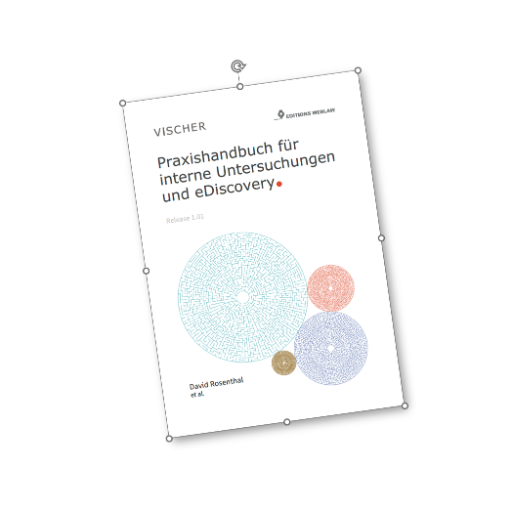Interne Untersuchungen in der Schweiz - Swiss Legal Guide

Willkommen! Wie kann ich Ihnen bei internen Untersuchungen helfen?
Navigating Internal Investigations with AI
Welche Schritte muss ich bei der Planung einer internen Untersuchung beachten?
Wie sollte Beweismaterial gesichert werden?
Darf ich Mitarbeiter ohne deren Wissen überwachen?
Unter welchen Umständen dürfen wir private E-Mails sichten?
Get Embed Code
Introduction to Internal Investigations in Switzerland
Internal Investigations in Switzerland encompass systematic, in-depth inquiries and assessments of facts regarding misconduct within an organization, carried out by the organization itself. These investigations are differentiated from operational controls, audits, and preparation for civil litigation or regulatory inquiries. They serve as a management tool for boards or management, focusing on violations of internal rules, public regulations, or criminal laws. Examples include discovering bribery in a medical device company through due diligence, showcasing the evolution from manual investigations to leveraging digital tools and methodologies. Powered by ChatGPT-4o。

Main Functions of Internal Investigations in Switzerland
Regulatory Compliance and Risk Management
Example
Identifying and addressing compliance issues like breaches of financial regulations or data protection laws.
Scenario
A company conducts regular audits to ensure adherence to the GDPR and Swiss data protection laws, avoiding potential fines.
Misconduct and Fraud Detection
Example
Investigating allegations of fraud, corruption, or workplace harassment.
Scenario
A whistleblower reports suspected embezzlement by a senior manager, triggering an investigation to gather evidence and determine the veracity of the claims.
Preparation for Legal Defense or Litigation
Example
Gathering and preserving evidence for potential legal disputes or regulatory scrutiny.
Scenario
In anticipation of a lawsuit alleging patent infringement, a company conducts an internal investigation to compile relevant documents and electronic communications.
Operational Improvement
Example
Analyzing operational failures or breaches of internal policies to improve processes.
Scenario
Following a data breach, an investigation identifies lapses in IT security policies, leading to revised protocols and training for employees.
Ideal Users of Internal Investigations Services in Switzerland
Corporate Management and Boards
To ensure regulatory compliance, manage risks, and uphold corporate governance standards.
Legal and Compliance Departments
For handling allegations of misconduct, ensuring adherence to laws and regulations, and preparing for potential litigation.
Human Resources Departments
To investigate workplace issues such as harassment, discrimination, or violations of company policies.
Audit and Risk Committees
For overseeing financial integrity, fraud prevention, and risk management strategies.

Usage Guidelines for Internal Investigations in Switzerland
1
Visit yeschat.ai for a free trial without needing to login, and without the necessity for ChatGPT Plus.
2
Identify the purpose of the investigation to align with legal and organizational guidelines.
3
Gather and secure relevant electronic data and documents, prioritizing confidentiality and integrity.
4
Conduct the investigation process, including interviews and analysis, with an emphasis on impartiality and thoroughness.
5
Document findings, conclusions, and recommend actions clearly and concisely, ensuring compliance with Swiss legal standards.
Try other advanced and practical GPTs
GPT角色提示词生成器
Craft Your Character's Voice with AI

Deforum Director GPT
Animating Your Ideas with AI

What Can I Say?
Empowering conversations with Montessori wisdom

GlobalNews Monitoring
Unlock Real-Time News From Everywhere, Powered by AI

Fitness Coach
Your AI-powered fitness companion

变量名创建者
Craft precise, AI-powered variable names effortlessly.

Cyber Legal Advisor Erik
Navigating Cyber Law with AI

Academia Cocina Mexicana
Revolutionizing Mexican Cuisine Learning with AI

Chinese Cooking
AI-powered Chinese Culinary Explorer

Meme Maker
Craft Memes Effortlessly with AI

taskwarriorGPT
AI-powered guidance for Taskwarrior CLI

Maestro de Listados Amazon
Elevate Your Amazon Listings with AI

Q&A on Internal Investigations in Switzerland
What legal frameworks govern internal investigations in Switzerland?
Internal investigations in Switzerland are guided by a combination of Swiss employment law, data protection regulations, and specific industry standards. The process must ensure fairness, data privacy, and compliance with local laws.
How are confidentiality and data protection handled during investigations?
Confidentiality and data protection are paramount. Investigations must comply with the Swiss Federal Act on Data Protection (FADP) and the General Data Protection Regulation (GDPR) if applicable, ensuring personal data is handled securely.
What are the key steps in conducting an internal investigation?
Key steps include defining the scope, securing evidence, conducting interviews, analyzing information, and reporting findings while ensuring legal compliance and confidentiality.
Can employees refuse to cooperate in an internal investigation?
While employees are generally expected to cooperate, their rights, including privacy and against self-incrimination, must be respected. Refusal to cooperate must be handled carefully to avoid legal repercussions.
How should the findings of an internal investigation be reported?
Findings should be documented and reported in a manner that respects confidentiality and legal obligations. The report should provide a clear, factual account of the investigation, findings, and recommended actions.
